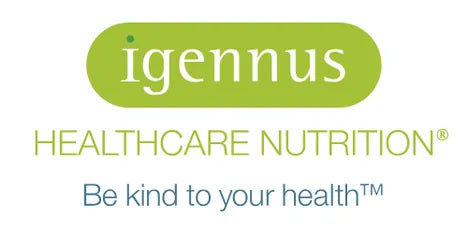No one contests the fact that women experience very real physical and psychological symptoms when going through the menopause, but does a similar phenomenon occur in men? Or are changes observed in men of advancing years just due to inevitable ageing? In this article, we’ll look at the causes, symptoms and signs of male hormonal imbalance, while exploring actionable steps men can take to maintain healthy testosterone levels.
Male hormones – the basics
Unlike women, men do not, as a rule, experience a dramatic decrease in hormone levels in middle age, making the terms ‘male menopause’ and ‘andropause’ misleading. While testosterone levels usually decrease gradually with age, abnormal hormone levels can significantly affect quality of life.
In response to messaging from the pituitary gland in the brain, the testes produce the most prominent male hormone, testosterone. However, a small amount is also produced by the adrenal glands - small endocrine glands best known for their role in our fight-or-flight response. Rising rapidly during puberty, testosterone causes the development of male physical characteristics, maintains a healthy muscle & bone mass and boosts mood, brain function, libido and confidence.
Although oestrogen is considered a ‘female hormone’, it is also present in healthy men and plays a critical role in, amongst others, male sexual function. In men, the enzyme aromatase, found especially in adipose (fat) tissue, converts oestrogen from testosterone. Despite being beneficial in small amounts, high oestrogen levels can lead to chronic illness and also lower testosterone via a negative feedback loop.
Interesting fact: Married men and especially fathers have slightly lower testosterone levels than their single peers. Physiologically, this makes them more likely to settle down and care for their families rather than going out to fight or look for a new mate!
Causes of decreased testosterone
One main cause is beyond your control – ageing. Testosterone levels peak at age 18 and fall gradually after age 30 at a rate of ~1-2% per year. (1) An estimated 40% of men over the age of 40 have low testosterone levels on blood tests, although only 10% experience symptoms.
Other causes are largely due to lifestyle and behavioural factors. Aromatase activity increases with body fat mass, meaning more testosterone may be converted to oestrogen in overweight men. High circulating levels of oestrogen cause the pituitary gland to hold back its hormonal signalling for the testes, resulting in decreased testosterone production. This vicious cycle means that testosterone production is further diminished in men with high oestrogen levels.
Sleep deprivation decreases testosterone by 10-20%. (2; 3)
Both a lack of exercise and overtraining are culprits - decreased physical activity by causing weight gain, excessive exercise by increasing levels of stress and inflammation in the body, - which suppress sex hormone production. (4) Similarly, chronic psychological stress is thought to lead to a decrease in testosterone levels since reproduction is not prioritised during times of stress.
Chronic, excessive alcohol consumption and low-fat diets, as well as certain medications, such as antidepressants and chemotherapy drugs, also contribute to lower testosterone levels. (5; 6) Additionally, there is a definite relationship between BPA (7) & phthalates (8), chemicals found in many plastics, cosmetics and even till receipts, and decreased testosterone.
Symptoms of male hormone imbalance
Decreased testosterone and raised oestrogen share many of the same symptoms in men. Muscle mass diminishes and fat accumulation increases, especially in the abdominal area, with potential breast enlargement. You may feel less energetic, have trouble sleeping and experience mood symptoms, such as depression (9), as well as irritability, loss of confidence and poor memory & concentration. Libido decreases, and erectile dysfunction can occur.
Typical levels of estrogen and testosterone in men over time. Image courtesy of letsgetchecked.com
Consequences of male hormone imbalance
It’s not just about how you feel today, but also about protecting your health for years to come. Imbalanced hormones put men at a higher risk of metabolic conditions (14), such as diabetes & cardiovascular disease, strokes, osteoporosis, prostate enlargement and cancer.
Tips for maintaining healthy testosterone levels
- Get sufficient sleep: aim for 7-9 hours per night
- Achieve or maintain a healthy weight: fat, especially around the middle, results in increased aromatase activity, converting testosterone to oestrogen and leading to a vicious cycle of more fat deposition & lowered testosterone production
- Consume adequate zinc: testosterone levels correlate with zinc concentration in the body. (10; 11) Found in the highest amounts in shellfish and meat, vegans and vegetarians in particular need to ensure they are getting enough of this mineral. Plant-based diets tend to be lower in zinc yet higher in phytates – substances found in wholegrains, legumes, nuts and seeds that bind minerals, preventing their absorption. Zinc is often included in multivitamin & mineral formulas, such as Igennus’ Pure & Essential Multivitamin & Minerals, Neurobalance and MindCare BALANCE
- Keep vitamin D levels topped up: studies show an association between low vitamin D levels and decreased testosterone. (12) It’s recommended that everyone in the UK supplements during the winter months as the sunlight during this time doesn’t contain enough UVB radiation for skin to synthesise vitamin D. Igennus recommends Pure & Essential Daily D3 or Vegan D3
- Include healthy fats in your diet, e.g. avocados & olives and their oils, nuts & seeds and coconut oil
- Avoid regular excessive alcohol consumption
- Exercise regularly (but not excessively), both for general health and to keep weight in check. Resistance and weight training are particularly beneficial (13)
- Manage stress by making enough time for relaxation, and through activities such as deep breathing, meditation or yoga. Keeping levels of the stress hormone cortisol well balanced helps to keep testosterone levels healthy
- Decrease exposure to BPA and phthalates by using ‘natural’ cosmetics and cleaning agents, and avoiding foods & drinks stored or heated in plastic
How to get hormone levels checked and treated
If you suspect a hormone imbalance, a healthcare professional can assist you with taking and interpreting a male hormone level blood test. It’s even possible to order a home finger prick blood kit online. The total testosterone level test measures both the fraction that is bound to proteins and the free fraction, available for use by the body. A test measuring both total and free testosterone separately is thus more useful. Please bear in mind that test results should always be interpreted in conjunction with symptoms, as ‘normal’ testosterone levels vary naturally between men.
If your levels are indeed outside the normal range, initial treatment might focus on diet and lifestyle changes or addressing your specific symptoms. For more severe cases, your GP may advise testosterone treatment, available on the NHS, which can greatly improve quality of life and decrease mortality when prescribed and monitored correctly.
References:
- Feldman, H. et al. Age Trends in the Level of Serum Testosterone and Other Hormones in Middle-Aged Men: Longitudinal Results from the Massachusetts Male Aging Study. The Journal of Clinical Endocrinology & Metabolism, Volume 87, Issue 2, 1 February 2002, Pages 589–598, https://doi.org/10.1210/jcem.87.2.8201
- Leproult, R. & Van Cauter, E. Effect of 1 Week of Sleep Restriction on Testosterone Levels in Young Healthy Men. JAMA. 2011;305(21):2173-2174. doi:10.1001/jama.2011.710
- Plamen D. Penev, Association Between Sleep and Morning Testosterone Levels In Older Men. Sleep. Volume 30, Issue 4, April 2007, Pages 427–432, https://doi.org/10.1093/sleep/30.4.427
- Anderson, T., Lane, AR. & Hackney, AC. Cortisol and testosterone dynamics following exhaustive endurance exercise. Eur J Appl Physiol. 2016 Aug;116(8):1503-9. doi: 10.1007/s00421-016-3406-y.
- Hämäläinen, E. et al. Diet and serum sex hormones in healthy men. J Steroid Biochem. 1984 Jan;20(1):459-64.
- Dorgen, JF. et al. Effects of dietary fat and fiber on plasma and urine androgens and estrogens in men: a controlled feeding study. Am J Clin Nutr. 1996 Dec;64(6):850-5.
- Gonçalves, GD. et al. Bisphenol A reduces testosterone production in TM3 Leydig cells independently of its effects on cell death and mitochondrial membrane potential. Reprod Toxicol. 2018 Mar;76:26-34. doi: 10.1016/j.reprotox.2017.12.002.
- Chang, WH. et al. Phthalates might interfere with testicular function by reducing testosterone and insulin-like factor 3 levels. Hum Reprod. 2015 Nov;30(11):2658-70. doi: 10.1093/humrep/dev225
- Westley, CJ., Amdur, RL. & Irwig, MS. High Rates of Depression and Depressive Symptoms among Men Referred for Borderline Testosterone Levels. J Sex Med. 2015 Aug;12(8):1753-60. doi: 10.1111/jsm.12937.
- Prasad, AS. et al. Zinc status and serum testosterone levels of healthy adults. Nutrition. 1996 May;12(5):344-8.
- Chang, CS. et al. Correlation between serum testosterone level and concentrations of copper and zinc in hair tissue. Biol Trace Elem Res. 2011 Dec;144(1-3):264-71. doi: 10.1007/s12011-011-9085-y.
- Wehr, E. et al. Association of vitamin D status with serum androgen levels in men. Clin Endocrinol (Oxf). 2010 Aug;73(2):243-8. doi: 10.1111/j.1365-2265.2009.03777.x.
- Kraemer, WJ. & Ratamess, NA. Hormonal responses and adaptations to resistance exercise and training. Sports Med. 2005;35(4):339-61.
- Chrysohoou C. et al. Low total testosterone levels are associated with the metabolic syndrome in elderly men: the role of body weight, lipids, insulin resistance, and inflammation; the Ikaria study. Rev Diabet Stud. 2013 Spring;10(1):27-38. doi: 10.1900/RDS.2013.10.27.








